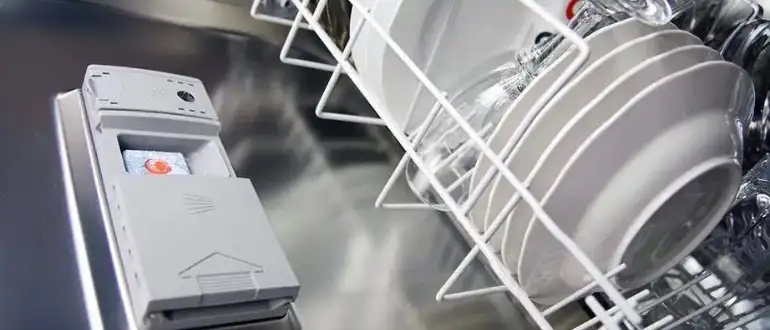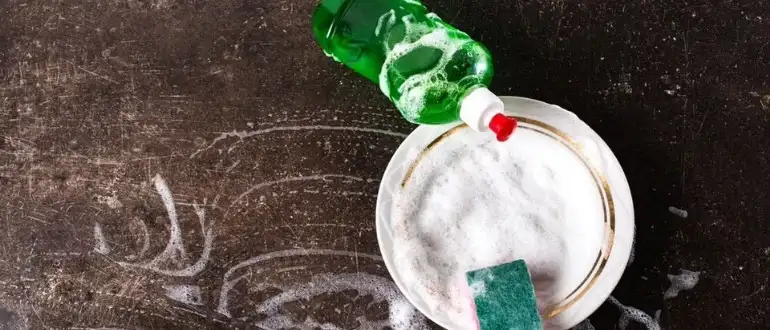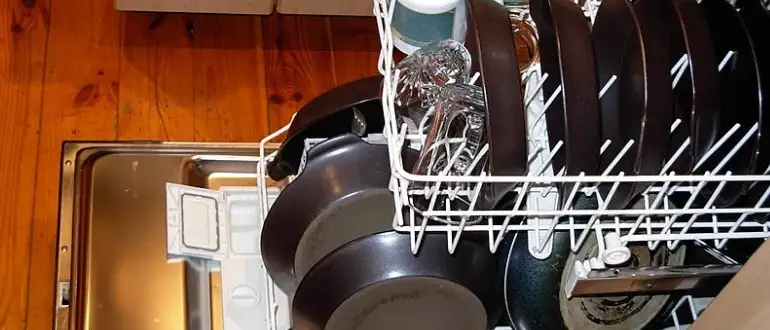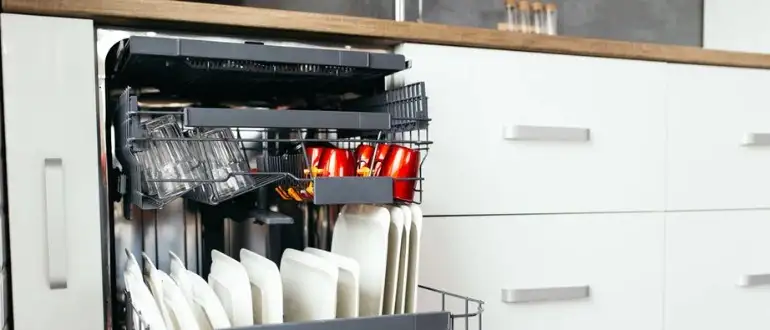Our newly brought dishwasher often connects to our water plumbing system and disposal drains. Here a question arises, “ can you have a dishwasher with a septic tank?”
Both dishwashers and our septic tank are equally important in terms of convenience. So, we must know how to use them without any danger or harm.
The article will give you the answer to the question. It will also guide you to maintain your dishwasher and plumbing system healthily.
Can You Have A Dishwasher With A Septic Tank
Yes, you can have a dishwasher with a septic tank simultaneously. They are not deadly for each other in any aspect.
However, you must have to maintain some rules and caution to use them.

For example, your dishwasher must have a fine absorption system to absorb the streams wholly. It will protect your septic tank from damage.
Also, you have to control the usage of the detergents that contain a bulk of phosphate or surfants. These chemicals kill the good bacteria of the septic tank.
After maintaining these two regulations, you can make your dishwasher and septic tank coexist.
How To Keep Your Dishwasher And Septic Tank In A Good Condition While Using Simultaneously
1. Avoid Using Phosphate richer Dishwasher detergent of dish soap

Try your best to use phosphate-free dishwasher detergent and dish soap. Phosphate is very harmful to the useful bacteria and enzymes of your septic tank.
Frequent phosphate detergent kills all of these bacteria. This act causes an undesirable odor in your tank which is one of the most unhealthy things.
Phosphate also breaks down the structure of your tank and brings several health issues for you.
So, instead of using phosphate-based detergents, use biodegradable and phosphate/sulfate-free detergents.
They are both eco-friendly and harmless for your health and septic tank.
2. Limit the surfactants disposal through the heated water
The dishwasher needs surfactants to wash out your overly dirty fish. In this function, they also need a high level of heated water and spirited dishwasher detergents.
When your dishwasher disposes of the hot chemical water after cleaning your dishes can contaminate the water of the septic tank as well as the groundwater. It can affect the function of the septic tank.
So, limit the use of surfactants mechanism.
3. Use A Water-Saving Dishwasher

The more your dishwasher will use water to function, the more your septic tank will face pressure.
To, give them a sort of relief, use a dishwasher that needs comparatively less water to clean your dishes.
It will both save your valuable water and take care of your septic tank from being overwhelmed. Most dishwashers nowadays have this feature to utilize the least water.
4. Try not to run your dishwasher until it is full
Your dishwasher needs the same amount of water whether it is half or full. Do not run your half-filled dishwasher several times daily. Wait till the night to make your dishwasher full.
Then run it. It will ensure that your septic tank does not have to hold excessive water frequently. Also, it will save water and electricity.
5. Do not run your dishwasher while running other appliances

This activity can hamper your septic tank severely. If you run your dishwasher and other appliance that uses water at the same time, they will dispose of excessive water.
For this reason, your septic tank will be burdened with extra water. It can hamper its function and damage its structure.
6. Ensure that your drainage system is efficient enough to handle wastewater
Your drainage field must be strong enough to take the pressure of influences. If your drains are effective enough, you need support from them
You may install a dry well or a greywater system. Through this system, the effluents will be gathered into a well instead of your safety tank. It will prevent leakage and odor.
FAQs about Having a Dishwasher with a septic tank
Why The Useful Bacteria And Enzymes Are So Important To Keep My Septic Tank Well?
They serve multiple purposes to keep your safety tank healthy. First of all, they help to decompose the waste of the tank.
As a result, a smooth sewerage system is ensured. There remains to pile of wastes and odors.
Secondly, being eco-friendly and organic, they fight germs. Lastly, they prevent the other substances from clogging in the pipe.
Which Objects Can Harm My Septic Tank?
Any type of hard chemical is detrimental to your septic tank. For example, bleach, a poisonous chemical, or motor oil.
They kill the essential bacteria and enzymes. For this, your whole septic system breaks down.
Will It Harm My Septic Tank If I Wash My Dishwasher With Vinegar?
No, your septic system has no danger with vinegar. Vinegar is very gentle, non-toxic, and organic.
It has no harmful chemicals which can harm useful bacteria.
Rather, vinegar will help to dissolve the soap scums, dirt, and other sticky substances of your septic tank.
That means vinegar is useful rather than harmful.
Is Dawn Dish Soap Bad For Our Septic Tank?
No, these soaps are friendly to our natural and instantly biodegradable.
So, there is no risk of using them if you have a septic tank.
Final Thoughts
We hope you have got the answer to the question, “ can you have a dishwasher with a septic tank?”.
They are friendly with each other if you show some caution while using them.
The dishwasher saves our time by washing our dishes swiftly and our septic tank is the root of our hygiene and cleanliness.
So, it is our responsibility to take good care of them.
This article is the basics of using your appliance and septic system safely and diligently.
We hope you will find it effective and implement the information in your daily household life. This will allow you to use your things for a long time.

